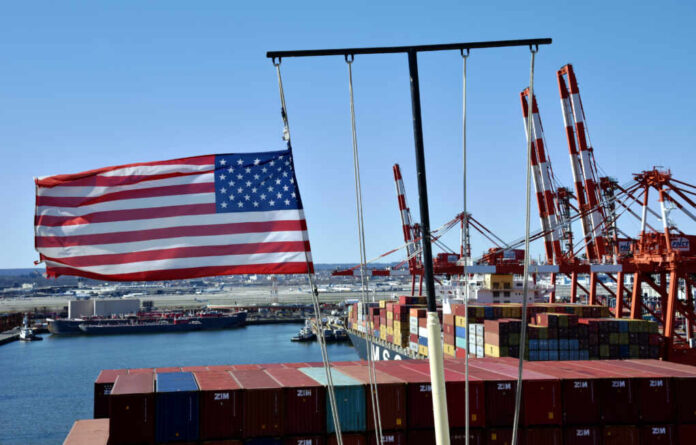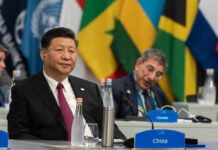
The United States is set to impose duties on all low-cost shipments globally, marking a significant shift in trade policy under President Trump’s leadership.
Story Overview
- President Trump ends the de minimis exemption for low-value imports.
- All imports valued at or under $800 will face duties starting August 29, 2025.
- The policy aims to combat tariff evasion and illicit shipments.
- This executive order accelerates a statutory timeline set by Congress.
Major Policy Shift Targets Global Imports
On July 30, 2025, President Donald Trump signed an executive order that effectively suspends the de minimis exemption for low-value imports globally. This policy change, effective August 29, 2025, mandates that all imports valued at or under $800 will now be subject to applicable duties. Previously, this exemption allowed such shipments to enter the U.S. duty-free, a practice aimed at simplifying trade and reducing administrative burdens.
Trump ends de minimis exemption for global low-cost goods https://t.co/uMvUqmgnQi
— CNBC (@CNBC) July 30, 2025
The White House cites national security and economic protection as primary motivations for this sweeping policy shift. The administration aims to close loopholes that have been exploited for tariff evasion and to combat the importation of illicit goods, including synthetic opioids. Previously, the exemption’s suspension had been limited to China and Hong Kong, but it will now apply globally, affecting supply chains and e-commerce worldwide.
Background and Historical Context
The de minimis exemption, originally codified to facilitate trade by allowing duty-free entry for shipments valued under a certain threshold, was increased to $800 in 2016. This change fueled a surge in low-value shipments, particularly from e-commerce growth. However, concerns arose over the abuse of this exemption, with a significant portion attributed to shippers from China and Hong Kong. Enforcement data indicated that 90% of all cargo seizures in fiscal year 2024 originated from de minimis shipments, underscoring the scale of the issue.
U.S. Customs and Border Protection (CBP) has been at the forefront of addressing these challenges, highlighting the enforcement difficulties posed by the sheer volume of low-value imports. The policy change comes amid heightened U.S.-China trade tensions, ongoing opioid crises, and increasing scrutiny of global supply chains for security and compliance risks.
Watch: U.S. to halt ‘de minimis’ tariff exception for low-value packages
Implications and Industry Impact
The immediate impact of this policy shift will likely be felt by U.S. importers, retailers, and e-commerce platforms that rely heavily on low-value shipments. These businesses will face increased costs, compliance burdens, and potential disruptions in their supply chains. U.S. consumers may also experience higher prices and reduced access to low-cost foreign goods.
In the long term, this move could lead to a reshaping of global supply chains, with businesses potentially seeking alternative sourcing strategies or consolidating shipments to mitigate costs. The policy could also result in increased domestic production and sourcing as companies adapt to new trade conditions.
Sources:
Avalara: “The de minimis exemption is ending: Is your business ready?”
Supply Chain Dive: “De minimis exemption to end Aug. 29, White House says”
White House Fact Sheet: “President Donald J. Trump is Protecting the United States’ National Security and Economy by Suspending the De Minimis Exemption for Commercial Shipments Globally”
White House Executive Order: “SUSPENDING DUTY-FREE DE MINIMIS TREATMENT FOR ALL COUNTRIES”

























